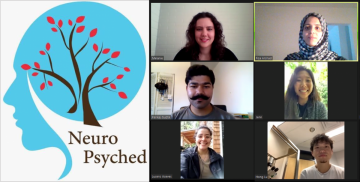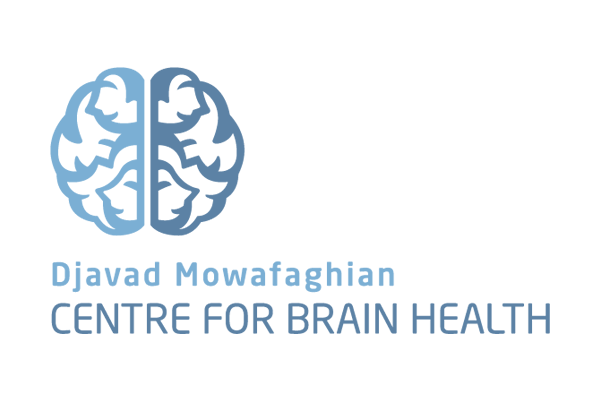
Written by Amanda Cheung, PhD student in Neuroscience
Neuropsyched is an online science communication platform in the format of a digital magazine, created by six UBC Neuroscience graduate students. Amanda Cheung (AC) sat down for a virtual interview with Co-Editors-in-Chief, Fiza Arshad (FA) and Hong Lu (HL).
AC: Congratulations on the launch of Neuropsyched! How did Neuropsyched begin?
FA: I proposed this idea when I joined UBC. I did my Master’s at McMaster and I wrote for a science communication newsletter. When I got here, there wasn’t something similar to do and I thought it would be nice to have some sort of program for students to talk about science. We’re hoping to start off at UBC, then branch out across Canada and connect graduate students nationwide.
AC: What can your audience expect when reading Neuropsyched?
HL: We have five sections: 1) Visiting Scientist Spotlight, 2) Research Scientist Spotlight, 3) On The Issues, where we talk about certain policy changes within the country that may affect research or scientists, 4) For Your Information, which is basically a pool of resources that trainees can tap into, and 5) knowledge mobilization, where we’re looking at certain industries or companies that are using basic science and translating it into different media.
In general, it’s to offer a new perspective for people that think there is only one possibility for them, the traditional academic route. We want to update their viewpoints, making sure people don’t feel trapped and that they have many options to consider.
AC: What would you say was the most surprising thing to you about launching this platform?
FA: What surprised me was even before we launched, we received a lot of support from everyone at UBC. The first tweet was retweeted and liked by so many people, and our supervisors were very supportive. I didn’t expect it and it blew me away. This is an amazing community.
HL: Exactly. In the beginning we needed a little bit of funding to host the website, so we talked to Liisa Galea, who is the director for the Graduate Program in Neuroscience, and also Lynn Raymond and Shernaz Bamji, from the DMCBH, for some funding just to start up. They were extremely supportive.
AC: What would you say was the biggest challenge you’ve faced so far?
FA: I’m interested to see what Hong would say and what the other team members would say. I think each one of us had individual challenges, but for us, editing was a major challenge.
HL: It was our first issue, so there were a lot more things to discuss from just formatting the individual articles to formatting the website. I think the main challenge was that because all of us wanted to do well, everyone had their own strong opinions and the roles at times overlapped. Everyone was editing all the articles and there would be a million edits. At a certain point we just realized that there was no end to this editing, and it could always be edited further and further, because in our mind it can always be better.
AC: Is there an achievement or contribution that you are most proud of so far?
FA: Jenn, our Website and Social Media Manager, is not a graphic designer, and what she did with the website is amazing. It looks professional. I think maybe I can speak for Hong, but we’re pretty proud of it.
HL: I’m proud of the whole thing! Everyone worked extremely hard and it was such a sense of relief when the website was finally published.
AC: What would you say is your vision for Neuropsyched? In the next few years, where do you see it going?
FA: We’re hoping to branch out and have writers and maybe a faculty advisor in other places outside of UBC. We want to reach more students and have a strong community nationwide.
HL: To add to that, I see it as a place for scientists to discover other scientists. I want to eventually get to a point where they’ll be reading a piece from a trainee and then they’ll dig deeper and possibly form a collaboration. That’s what we have envisioned.
FA: The other thing I would like to add is that even when we’re gone, I want Neuropsyched to still be there. I hope it’s not just something that we’re currently doing, but something that can be done for generations.
AC: What do you think other people should know about Neuropsyched?
FA: It’s not a one-person thing, it’s a team effort. This wouldn’t have been as great as it is, if each of us didn’t have strong opinions and feel personally passionate about what we’re doing.
HL: As Fiza said, is it’s not just one person and in parallel to that, it’s not just one subject. It’s not just neuroscience. I want to focus on the fact that it’s brain science. That includes glia, bioinformatics, psychology, linguistics, etc. In order to understand the brain, I think it’s almost egotistical to think that neuroscience is enough, we need much more than that. The reason why we named it Neuropsyched is to be more inclusive and to invite people from all disciplines that are related to the brain to come together.
FA: And it could also be a peripheral relationship to the brain, literally the peripheral nervous system! It doesn’t have to be the actual physical brain.
AC: Is there anything else you would like to share with me? Any final thoughts?
FA: If there is anyone interested in writing, whether you’re at UBC or outside, and you’re thinking “I wish I could write for Neuropsyched”, just reach out to us!
HL: I want people to know that we’re a team of very motivated students and there’s a lot of room to grow! So, as Fiza said, if anyone wants to join us and be part of this experience, then please reach out to us!


